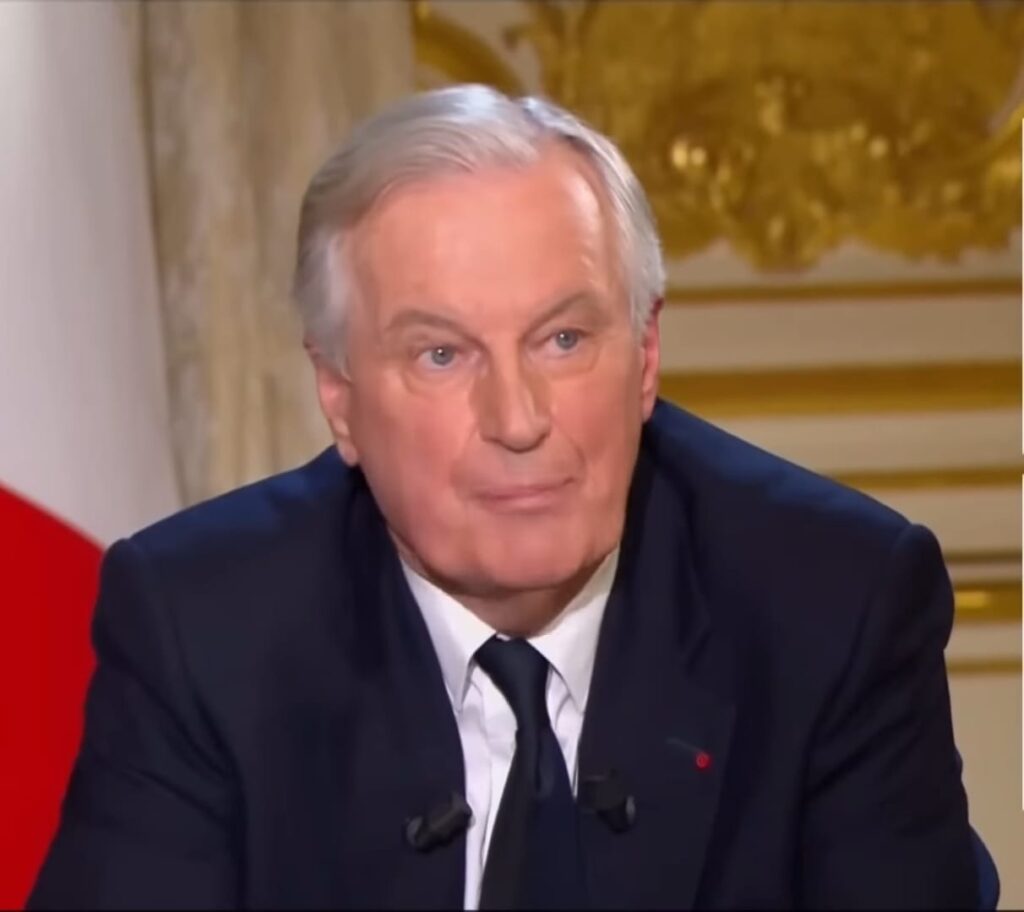
For the first time in over 60 years, France’s National Assembly approved a no-confidence motion against the incumbent government, marking a dramatic turn in French politics. The motion, proposed by the hard left, gained critical backing from the far-right, led by Marine Le Pen. This unexpected alliance spelled the end of Prime Minister Michael Barnier’s government, which lasted just three tumultuous months.
A Government Toppled
Prime Minister Barnier’s downfall was catalysed by his contentious austerity budget, which proposed tax increases and public spending cuts aimed at addressing France’s growing deficit. The measures were deemed necessary by Barnier but proved deeply unpopular, uniting opposing factions across the political spectrum.
On Wednesday, the National Assembly voted with a decisive majority of 331 MPs in the 577-member chamber to oust Barnier’s administration. This marks the first time since 1962 that a French government has been toppled by such a motion, a stark reminder of the political fragmentation gripping the nation. Speaker Yael Braun-Pivet confirmed the outcome, stating Barnier must “submit his resignation” to President Emmanuel Macron, ending his short-lived tenure as prime minister.
Political Chaos Amid Economic Challenges
The collapse of Barnier’s government comes after the summer’s snap parliamentary elections, which resulted in a hung parliament. No single party emerged with a majority, leaving President Macron’s centrist coalition vulnerable. The far-right, led by Marine Le Pen, holds a significant number of seats and has become a decisive force in parliamentary votes.
President Macron now faces the daunting task of appointing a new prime minister capable of bridging the vast ideological divides within the National Assembly. With over two years remaining in his term, Macron’s ability to govern effectively is under intense scrutiny.
“This vote marks the death knell of Emmanuel Macron’s mandate,” declared Eric Coquerel, a hard-left MP who championed the motion against Barnier. Meanwhile, right-wing leader Laurent Wauquiez accused both the far-left and far-right of plunging the country into “unnecessary instability.”
A Divisive Budget and Unusual Alliances
The no-confidence motion stemmed from the government’s decision to force through a controversial social security financing bill without a vote on Monday, further inflaming tensions. Barnier’s proposed budget cuts, which targeted social programs and public-sector spending, provoked widespread opposition.
Marine Le Pen’s far-right National Rally, traditionally at odds with the hard left, strategically joined forces to oust Barnier. Macron criticized this alliance as “unbearable cynicism,” accusing Le Pen of prioritizing political sabotage over governance.
While this move bolstered Le Pen’s standing among her base, analysts warn it could alienate key supporters, including business leaders and retirees. “In a few minutes, Le Pen shattered the strategy of normalizing her image,” wrote Le Monde in an editorial, highlighting the risks of her confrontational tactics.
Strikes and Public Discontent Loom
The political turmoil comes as France braces for widespread public-sector strikes. Teachers, air traffic controllers, and civil servants have announced walkouts to protest impending cost-cutting measures. The strikes threaten to disrupt schools, transportation, and other vital services, adding to the sense of crisis.
With financial markets on edge, Macron’s government is under pressure to restore stability and confidence. France’s economic woes, exacerbated by rising inflation and stagnating growth, remain a central challenge for whoever succeeds Barnier.
Macron’s Limited Options
Adding to Macron’s challenges is the constitutional restriction preventing another snap election within a year of last summer’s vote. This leaves the president with few options but to appoint a new prime minister from within the fragmented parliament.
Potential successors include Defence Minister Sebastien Lecornu, known for his loyalty to Macron, and centrist ally François Bayrou. Alternatively, Macron could look to figures like Bernard Cazeneuve, a former Socialist premier with broad appeal across party lines.
Macron has indicated his intention to move swiftly in naming a replacement, with insiders suggesting an announcement could come within days.
A Historic Precedent
The last time a French government fell to a no-confidence vote was in 1962, when Georges Pompidou’s administration was defeated under President Charles de Gaulle. Barnier’s ousting not only mirrors that historic moment but also sets a new record: his administration is now the shortest-lived in the history of the Fifth Republic, established in 1958.
Global and Domestic Distractions
Macron returned to Paris just hours before the vote after concluding a state visit to Saudi Arabia. During his trip, he was seen touring the iconic Al-Ula oasis, seemingly detached from the brewing political storm back home.
Meanwhile, Macron is preparing to host an international event this Saturday to mark the reopening of Notre-Dame Cathedral, devastated by a 2019 fire. The event, which will feature foreign dignitaries including U.S. President-elect Donald Trump, is seen as a chance for Macron to redirect attention toward national pride and progress.
However, critics argue that Macron’s focus on global diplomacy often comes at the expense of addressing France’s pressing domestic issues.
The Role of Marine Le Pen
Marine Le Pen’s involvement in toppling the government has sparked speculation about her broader ambitions. Observers suggest Le Pen aims to weaken Macron’s presidency ahead of her potential candidacy in the next election.
Yet, Le Pen faces her own challenges. She is currently embroiled in a high-profile embezzlement trial. If convicted in March, she could be barred from running in the next presidential race. This raises questions about the timing of her maneuvers and whether she hopes to force an early election before her legal troubles escalate.
The Road Ahead
France’s political crisis underscores the difficulties of governing in an increasingly polarized environment. The collapse of Barnier’s government, coupled with public unrest and economic uncertainty, leaves Macron with a monumental task.
Whether he can navigate these challenges and maintain his presidency’s credibility will depend on his next moves. The appointment of a unifying prime minister and a credible economic recovery plan will be crucial in stabilizing France’s fragile political landscape.
As Macron seeks to regain control, one thing is clear: the stakes for his administration and France’s future have never been higher.